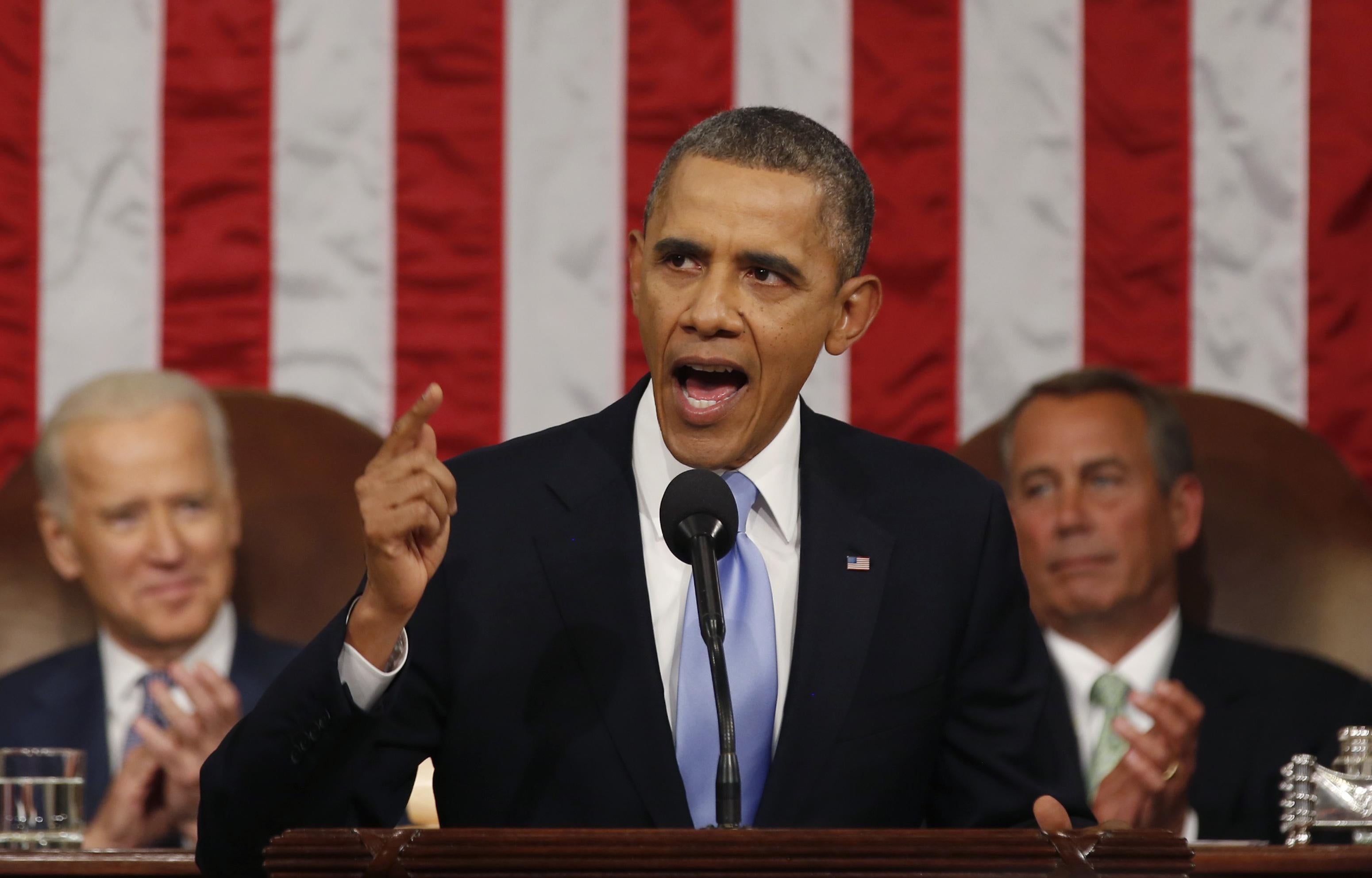For the past two years, Barack Obama has used the State of the Union to outline an ambitious domestic agenda: infrastructure investment, job training, funding for scientific research, comprehensive immigration reform, clean air regulations, education reform and greater funding for schools, higher wages, paid sick leave, free community college, and equal pay for women.
A solid agenda, from the perspective of liberals and Democratic activists. But also a pipe dream. Since 2011—and especially since 2015, when Republicans won Senate control—divided government has meant inertia for Obama’s agenda in Congress. Anything Obama wants—and specifically, anything that might advance liberalism—is a dead letter to the conservative Republican majority on Capitol Hill. In a real way, his State of the Union addresses were wish lists for a future when Democrats controlled the federal government, full stop.
A presidential wish list, however, is still valuable. It’s where the president sets priorities for himself and his party, and it’s a helpful guide for other party members—from state politicians to national activists—as they plot a course for policy and political action.
But just because it’s valuable doesn’t mean it’s necessary. And this year, for his final State of the Union, President Obama should set the wish list aside. It’s not just that his agenda can’t succeed in the present environment but that Democrats already know what he wants. At most, another wish list would serve to remind his party, and the country, of past proposals and renew old calls for action.
Instead of a wish list of policy, Obama should use the nation’s attention on Tuesday to make a pitch—for his legacy.
This would be a bit of a departure from the typical final year State of the Union of a two-term president, which—as is the form—tends to tout accomplishments, push new measures, and close with some note about America’s greatness. Implicit, often, is a pitch for a like-minded successor. But, for understandable reasons—the State of the Union is not meant to be a partisan exercise—it’s left unspoken, even as polarization adds an ideological edge to the entire event. That implicit partisanship is in everything from the customary response by the party out of power, to the punctuated applause of co-partisan lawmakers and the conspicuous silence of political opponents on the other side. Making the partisanship explicit in the speech would just be making subtext text.
Moreover, Obama would have good reason for the move. If the 2012 election was a referendum on Obama’s first term, then 2016 is shaping up as a generational choice for the American public. Does it want to continue, refine, and expand Obama’s liberalism? Or does it want to build a new foundation for future conservatism? The intense polarization of modern electoral politics—where the gap between the most conservative Democrat and most liberal Republican is far wider than any gap within their respective parties—means less continuity when the White House passes hands (at least on domestic policy). The pendulum swings, for real.
In the same way that 2008 brought a real reorientation of government across legislative, judicial, and regulatory spheres, a GOP presidency would do the same in 2017, from a long-term conservative majority on the Supreme Court—the kind that might undo decades of liberal rulings—to a largely unified conservative majority that would repeal key parts of the Obama agenda—and change any congressional rules necessary to make it happen—and reshape the government’s relationship to ordinary Americans.
Which is to say that, if a Democrat isn’t elected this year, much of Obama’s legacy is lost, either to legislation, executive action, or judicial review. Put differently, nothing Obama proposes will matter unless there’s a president in 13 months who shares basic parts of his worldview.
Obama shouldn’t side-step or talk around this. He should address it, head on. Not only should he tout his administration for what he sees as its successes, but he should tell the American people that—if they liked his tenure—they should look for a like-minded successor. And he doesn’t need to endorse either Hillary Clinton or Bernie Sanders. He just needs to make clear that his agenda depends on a Democratic president in 2017.
This will cause consternation; the president would be breaking a norm. But for Obama, any blow to political decorum is worth the clarity of a partisan State of the Union. The stakes are high, and if Obama believes a GOP president would threaten his legacy—and every indication says he or she would—then he should say so, to the American people.
